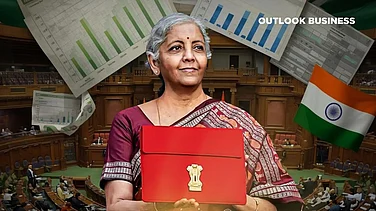The Economic Survey that was tabled in Parliament today has called global climate change strategies flawed. The reason behind it, the survey says, is simple: It continues to ignore trade-offs.
Practical leaders have had to acknowledge trade-offs, causing delays in their plans. The UK postponed its ban on petrol and diesel vehicles from 2030 to 2035, and Germany relaxed its fossil fuel boiler ban rules. Alternative political parties are rising in developed countries due to public backlash against climate rules that increase living costs for the poor, according to the survey.
Highlighting the disparity between developed and developing countries, the survey says that it is wrong to blame developing countries for not curbing energy consumption. It says, “It is morally wrong to tell developing countries to abandon their aspirations for better living standards so that developed countries can maintain their ways of living in cleaner environments and cooler climates.”
The United Nations has also mentioned that developing countries are most vulnerable to climate change and “bear a disproportionate burden in terms of experiencing the adverse impacts of climate change.”
Taking a direct hit at the developed countries, the survey highlights how, along with downgrading the process of elevation to contain global emissions, “developing nations are also being threatened with a carbon tax at the border.”
A carbon tax is basically a fee imposed by companies for generating carbon emissions. A report by the Centre for Science and Environment (CSE), an independent think tank, recently said that the Carbon Border Adjustment Mechanism (CBAM) imposed by the European Union is expected to cost India 0.05 per cent of the country's GDP.
So, what should India do amid this situation? The country should focus on managing the impact of climate change while also seeing that its developmental priorities are not affected.
India has already made strides in combating climate change. 15.03 GW of additional installed solar power capacity were added in 2023–2024, for a total of 82.64 GW on April 30, 2024, according to the survey. While the country has made several efforts to tackle the problem of climate change, it is one of the most climate-vulnerable countries.
Thus, it becomes imperative to have “adaptive strategies in agriculture and conservation efforts to mitigate the detrimental effects of climate change on natural habitats, vegetation, and vital bio-resources," according to the survey.
































